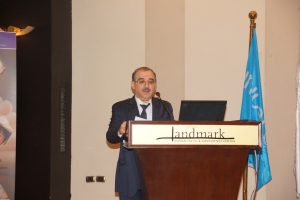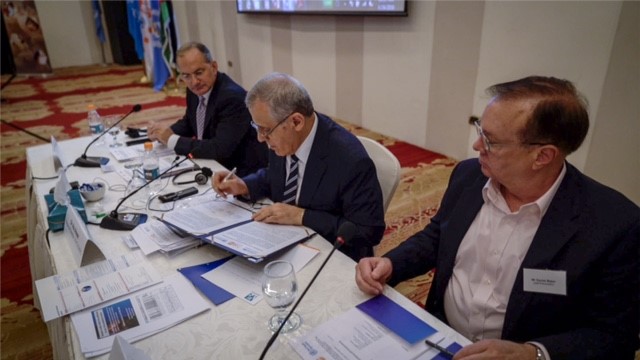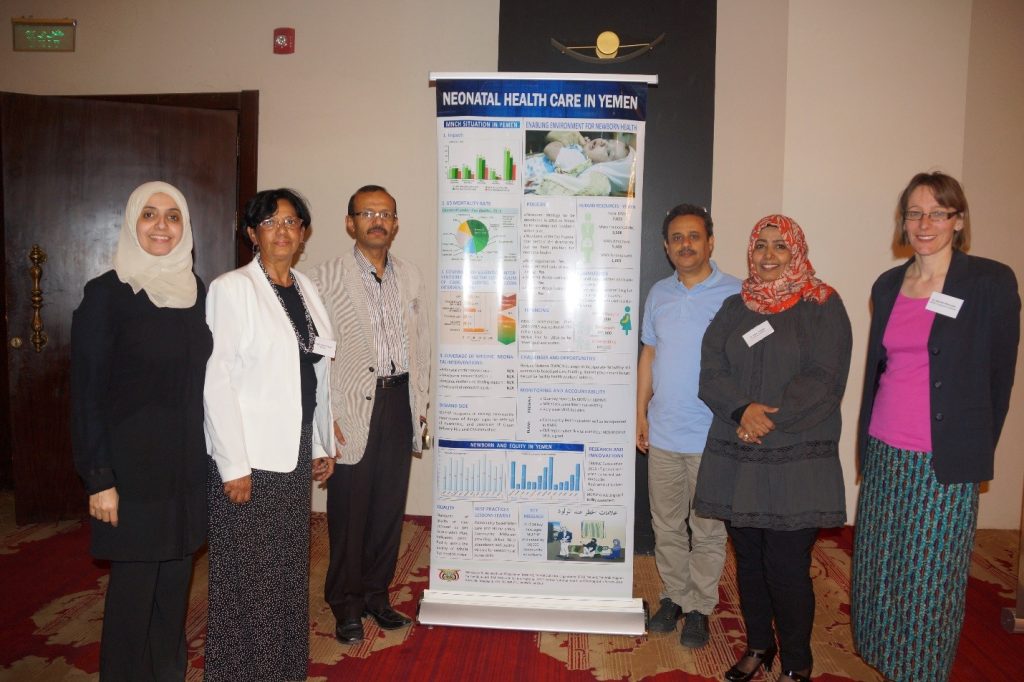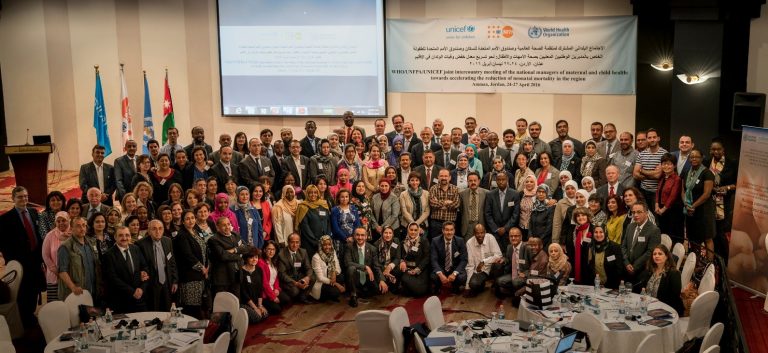WHO, UNFPA and UNICEF hosted a joint intercountry meeting of national managers of maternal and child health in Amman, Jordan from 24-27 April 2016 entitled WHO/UNFPA/UNICEF joint intercountry meeting of national managers of maternal and child health: Towards accelerating the reduction of neonatal mortality in the region. Over 130 key actors responsible for program implementation in countries attended from sixteen countries. Among these, there were 40 participants from the Ministries of Health of Afghanistan, Egypt, Iran, Iraq, Jordan, Lebanon, Libya, Morocco, Pakistan, Palestine, Somalia, Sudan, Syria, Tunisia, and Yemen.
This meeting was prepared based on the achievements of the Regional Initiative on Saving the Lives of Mothers and Children (2010-2015) and the identified need in the region to drive further activity toward the reduction of maternal and newborn mortality. The meeting further responded to the recommendations of the joint (UNFPA and UNICEF) Inter-country meeting, held from 29 March to 2 April 2015, which convened national maternal, neonatal and child health programme managers on how to address the main causes of maternal, neonatal and child mortality. That meeting had highlighted, in particular, the need to strengthen the capacities of Maternal and Child Health national managers with regard strategic planning, implementation and measurement of the expected outcomes, to support reaching the targets set out the Sustainable Development Goals (SDGs) agreed at the UN General Assembly in September 2015.

The meeting provided the opportunity for discussion and dialogue between countries and experts on how the recommendations set out in the Every Newborn Action Plan can be tailored to each country context, and how this fits with other on-going or related initiatives aiming at ending preventable deaths of mothers and newborns. The meeting also supported the development of the maternal and newborn component of regional and national RMNCAH strategic plans: 2016-2020 in accordance with the Global Strategy on Women’s, Children’s and Adolescents’ Health 2016-2030, with specific focus on countries with high burden of maternal and child mortality, and countries with emergency situations.
The meeting objectives were:
- Develop an in-depth understanding of Every Newborn Action Plan, share best practices and innovations, and identify required implementation steps at the country level;
- Share with the Maternal and Child Health national managers the latest updates and developments on the Global Strategy for Women’s, Children’s and Adolescent’s Health, its Operational Framework, maternal, neonatal and child health target indicators, and the information on the Global Financing Facility and further resource mobilisation opportunities; and
- Discuss the implementation process of the RMNCAH operational work-plans (2016-17) and identify areas that need to be further strengthened in line with the SDGs targets, including the response to countries in emergency situations, and resource mobilization at all levels.

During the meeting, the Regional Directors of WHO, UNFPA and UNICEF signed a Joint Statement on Accelerating the Reduction of Neonatal Mortality to commit their continued support to governments across the region to end preventable maternal, newborn and child deaths by 2030.
Country teams presented the national situation analysis of newborn health in the format of posters.

To learn more about this meeting, contact info@healthynewbornnetwork.org
FURTHER INFORMATION
